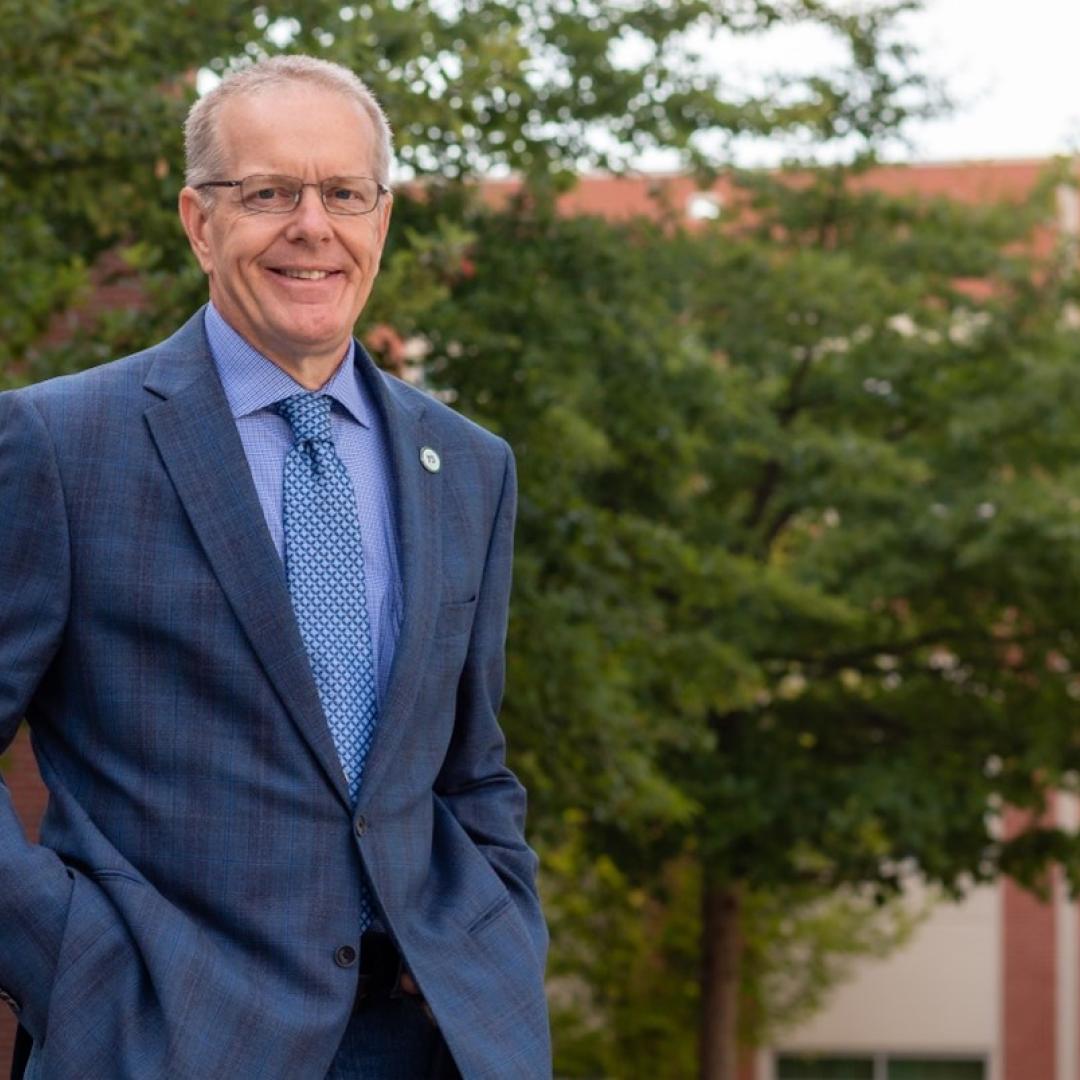
Filter News
Area of Research
- Advanced Manufacturing (2)
- Biological Systems (1)
- Biology and Environment (64)
- Clean Energy (102)
- Computational Biology (1)
- Fusion and Fission (8)
- Fusion Energy (1)
- Materials (50)
- Materials for Computing (11)
- National Security (12)
- Neutron Science (20)
- Nuclear Science and Technology (2)
- Quantum information Science (2)
- Supercomputing (65)
News Type
News Topics
- (-) Big Data (30)
- (-) Bioenergy (74)
- (-) Buildings (31)
- (-) Coronavirus (34)
- (-) Frontier (38)
- (-) Microscopy (36)
- (-) Polymers (20)
- (-) Sustainable Energy (74)
- (-) Transportation (52)
- 3-D Printing/Advanced Manufacturing (81)
- Advanced Reactors (18)
- Artificial Intelligence (75)
- Biology (80)
- Biomedical (45)
- Biotechnology (18)
- Chemical Sciences (52)
- Clean Water (15)
- Climate Change (70)
- Composites (15)
- Computer Science (139)
- Critical Materials (13)
- Cybersecurity (31)
- Decarbonization (64)
- Education (4)
- Element Discovery (1)
- Emergency (2)
- Energy Storage (70)
- Environment (137)
- Exascale Computing (34)
- Fossil Energy (5)
- Fusion (43)
- Grid (38)
- High-Performance Computing (69)
- Hydropower (5)
- Isotopes (45)
- ITER (4)
- Machine Learning (35)
- Materials (100)
- Materials Science (94)
- Mathematics (6)
- Mercury (9)
- Microelectronics (3)
- Molten Salt (3)
- Nanotechnology (42)
- National Security (53)
- Net Zero (11)
- Neutron Science (96)
- Nuclear Energy (80)
- Partnerships (43)
- Physics (52)
- Quantum Computing (29)
- Quantum Science (56)
- Renewable Energy (2)
- Security (22)
- Simulation (38)
- Software (1)
- Space Exploration (15)
- Statistics (2)
- Summit (50)
- Transformational Challenge Reactor (7)
Media Contacts
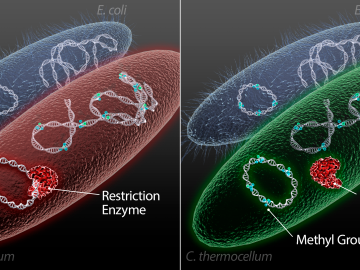
Scientists at the US Department of Energy’s Oak Ridge National Laboratory have demonstrated a method to insert genes into a variety of microorganisms that previously would not accept foreign DNA, with the goal of creating custom microbes to break down plants for bioenergy.
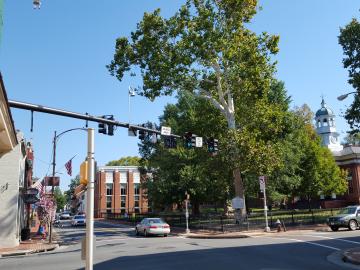
A modern, healthy transportation system is vital to the nation’s economic security and the American standard of living. The U.S. Department of Energy’s Oak Ridge National Laboratory (ORNL) is engaged in a broad portfolio of scientific research for improved mobility

More than 6,000 veterans died by suicide in 2016, and from 2005 to 2016, the rate of veteran suicides in the United States increased by more than 25 percent.
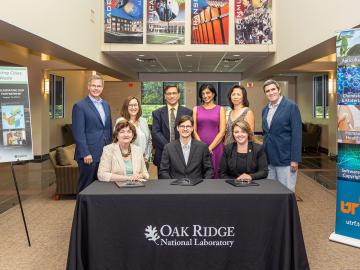
Electro-Active Technologies, Inc., of Knoxville, Tenn., has exclusively licensed two biorefinery technologies invented and patented by the startup’s co-founders while working at the Department of Energy’s Oak Ridge National Laboratory. The technologies work as a system that converts organic waste into renewable hydrogen gas for use as a biofuel.
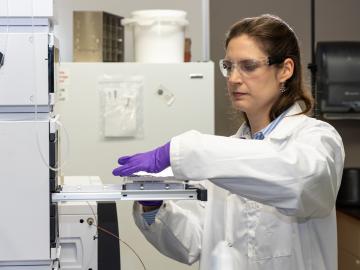
Early career scientist Stephanie Galanie has applied her expertise in synthetic biology to a number of challenges in academia and private industry. She’s now bringing her skills in high-throughput bio- and analytical chemistry to accelerate research on feedstock crops as a Liane B. Russell Fellow at Oak Ridge National Laboratory.
A team of scientists led by Oak Ridge National Laboratory have discovered the specific gene that controls an important symbiotic relationship between plants and soil fungi, and successfully facilitated the symbiosis in a plant that
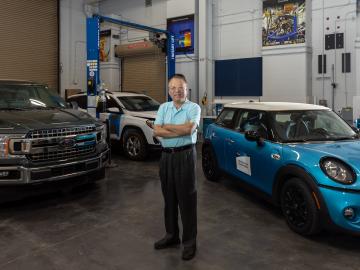
In Hong Wang’s world, nothing is beyond control. Before joining Oak Ridge National Laboratory as a senior distinguished researcher in transportation systems, he spent more than three decades studying the control of complex industrial systems in the United Kingdom.
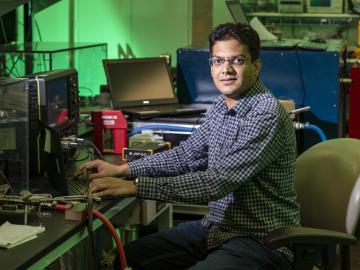
Galigekere is principal investigator for the breakthrough work in fast, wireless charging of electric vehicles being performed at the National Transportation Research Center at Oak Ridge National Laboratory.

OAK RIDGE, Tenn., May 7, 2019—The U.S. Department of Energy today announced a contract with Cray Inc. to build the Frontier supercomputer at Oak Ridge National Laboratory, which is anticipated to debut in 2021 as the world’s most powerful computer with a performance of greater than 1.5 exaflops.
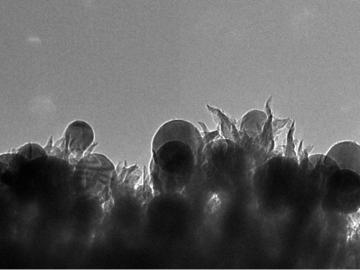
OAK RIDGE, Tenn., March 1, 2019—ReactWell, LLC, has licensed a novel waste-to-fuel technology from the Department of Energy’s Oak Ridge National Laboratory to improve energy conversion methods for cleaner, more efficient oil and gas, chemical and


